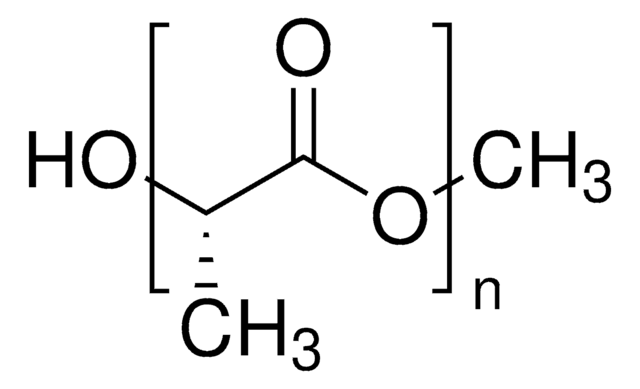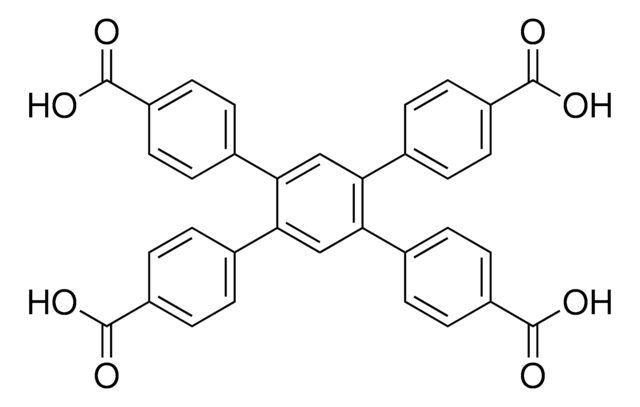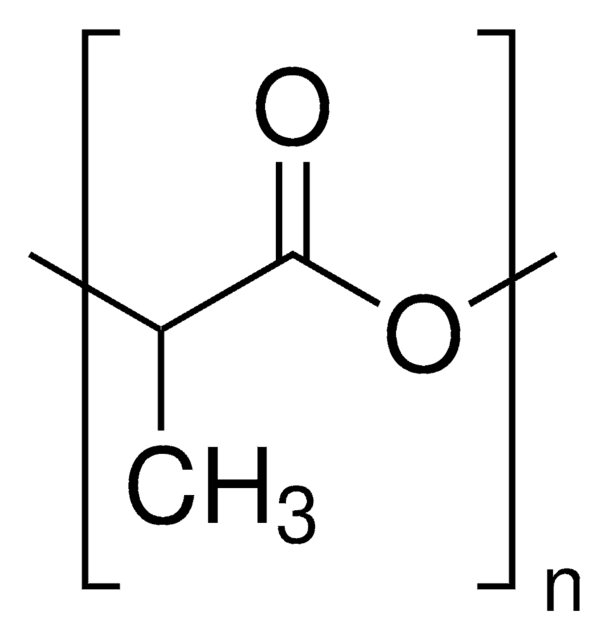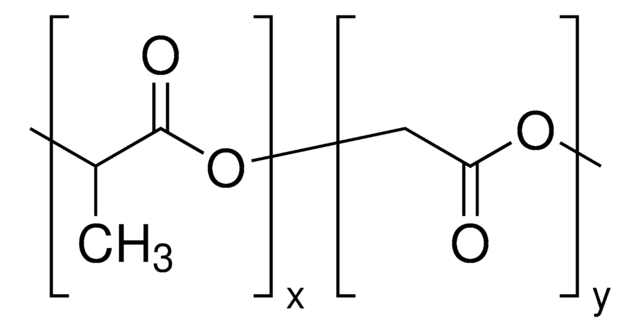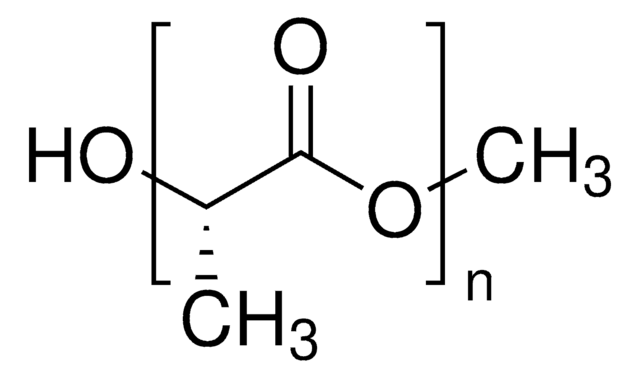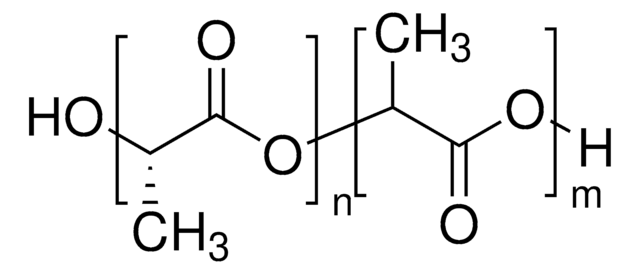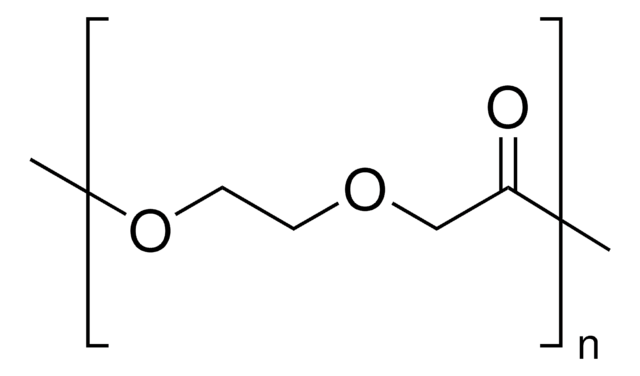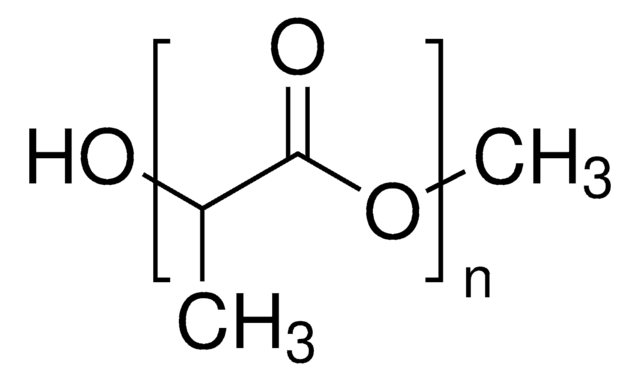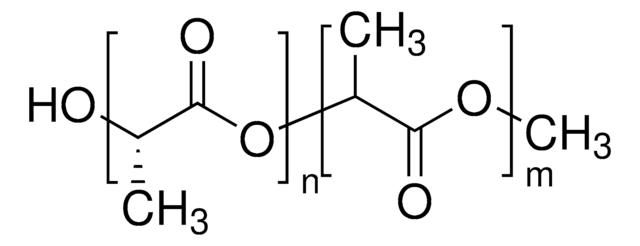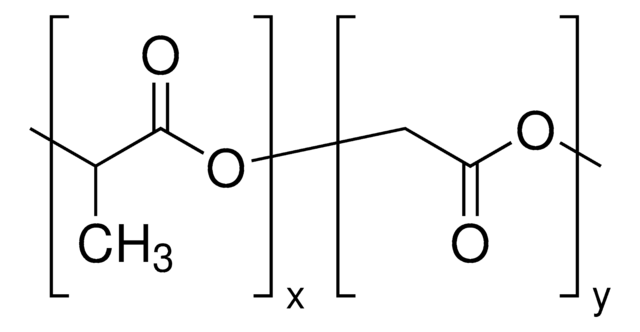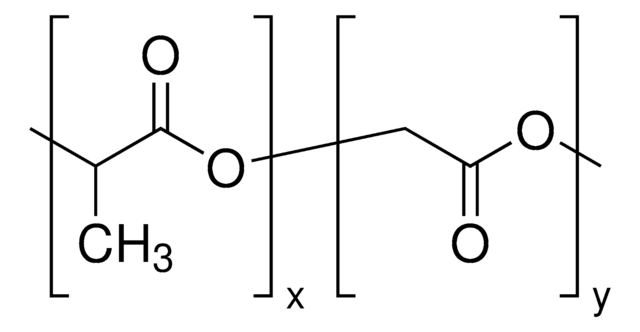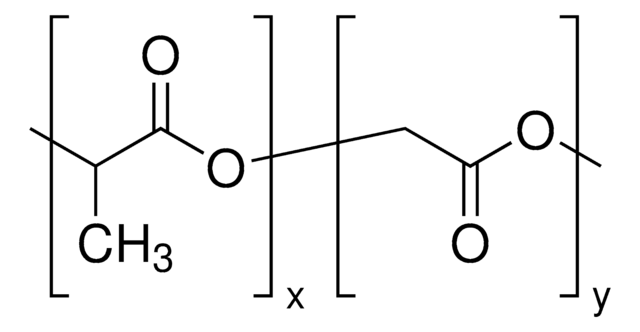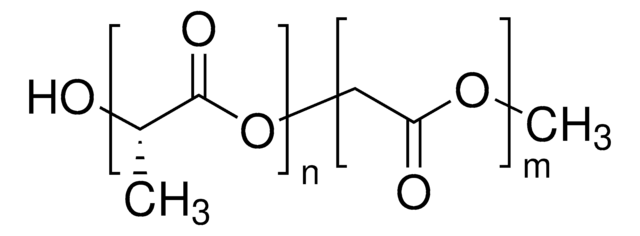719854
Resomer® L 206 S, Poly(L-lactide), ester terminated
Synonym(s):
PLL
About This Item
Recommended Products
form
granular
degradation timeframe
>3 years
viscosity
0.8-1.2 dL/g, 0.1 % in chloroform(25 °C, Ubbelohde) (size 0c glass capillary viscometer)
transition temp
Tm 180-185 °C
Tg 60-65 °C
storage temp.
2-8°C
General description
Application
Legal Information
related product
Storage Class Code
11 - Combustible Solids
WGK
WGK 3
Flash Point(F)
Not applicable
Flash Point(C)
Not applicable
Choose from one of the most recent versions:
Already Own This Product?
Find documentation for the products that you have recently purchased in the Document Library.
Customers Also Viewed
Articles
Aliphatic polyesters such as polylactide, poly(lactide-co-glycolide) and polycaprolactone, as well as their copolymers, represent a diverse family of synthetic biodegradable polymers that have been widely explored for medical uses and are commercially available.
Aliphatic polyesters such as polylactide, poly(lactide-co-glycolide) and polycaprolactone, as well as their copolymers, represent a diverse family of synthetic biodegradable polymers that have been widely explored for medical uses and are commercially available.
In the past two decades, tissue engineering and regenerative medicine have become important interdisciplinary fields that span biology, chemistry, engineering, and medicine.
Innovations in polymer technology have had a significant impact on the advancement of novel drug delivery systems.
Related Content
Interest in utilizing biodegradable polymers for biomedical applications has grown since the 1960s.
Our team of scientists has experience in all areas of research including Life Science, Material Science, Chemical Synthesis, Chromatography, Analytical and many others.
Contact Technical Service